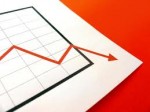 Exactly why have industrial companies around the world been slow to recover? And why did everything look so promising … and then suddenly, seem to grind to a halt?
Exactly why have industrial companies around the world been slow to recover? And why did everything look so promising … and then suddenly, seem to grind to a halt?
Perhaps some insight into this dilemma was provided by the IMF’s recent World Economic Outlook.
According to Oliver Blanchard (its chief economist), there are the dual influences of a slowdown in advanced Western economies; and the overall financial uncertainty.
During the GFC, companies allowed their inventories to run down. Then, with a hint of global recovery, those same companies began replacing their depleted inventory levels. [Read more…]











